Noble Use Of Money by Dada Bhagwan (best books for 8th graders TXT) 📕
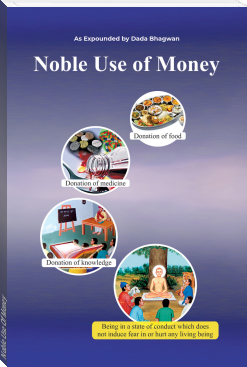
- Author: Dada Bhagwan
Book online «Noble Use Of Money by Dada Bhagwan (best books for 8th graders TXT) 📕». Author Dada Bhagwan
As Expounded by Dada Bhagwan
Noble Use of Money
Originally Compiled in Gujarati by: Dr. Niruben Amin
Trimantra
The Three Mantras That Destroy All Obstacles in Life
Namo Vitaraagaya
I bow to the Ones who are absolutely free from all attachment and abhorrence
Namo Arihantanam
I bow to the living Ones who have annihilated all internal enemies of anger, pride, deceit and greed
Namo Siddhanam
I bow to the Ones who have attained the state of total and final liberation
Namo Aayariyanam
I bow to the Self-realized masters who impart the Knowledge of the Self to others
Namo Uvazzayanam
I bow to the Ones who have received the Knowledge of the Self and are helping others attain the same
Namo Loye Savva Sahunam
I bow to the Ones, wherever they may be, who have received the Knowledge of the Self
Eso Pancha Namukkaro
These five salutations
Savva Pavappanasano
Destroy all demerit karma
Mangalanam cha Savvesim
Of all that is auspicious
Padhamam Havai Mangalam ||1||
This is the highest
Om Namo Bhagavate Vasudevaya ||2||
I bow to the Ones who have attained the absolute Self in human form
Om Namah Shivaya ||3||
I bow to all human beings who have become instruments for the salvation of the world
Jai Sat Chit Anand
Awareness of the Eternal is Bliss
Who is Dada Bhagwan ?
In June 1958, around 6 o'clock one evening, amidst the hustle and bustle of the Surat railway station while seated on a bench, ‘Dada Bhagwan’ manifested completely within the sacred bodily form of Ambalal Muljibhai Patel. Nature revealed a remarkable phenomenon of spirituality! In the span of an hour, the vision of the universe was unveiled to him! Complete clarity for all spiritual questions such as, ‘Who are we? Who is God? Who runs the world? What is karma? What is liberation?’ etc. was attained.
What he attained that evening, he imparted to others through his original scientific experiment (Gnan Vidhi) in just two hours! This has been referred to as the Akram path. Kram means to climb up sequentially, step-by-stepwhile Akram means step-less, a shortcut, the elevator path!
He, himself, would explain to others who Dada Bhagwan is saying, “The one visible before you is not Dada Bhagwan. I am the Gnani Purush and the One who has manifested within is Dada Bhagwan who is the Lord of the fourteen worlds. He is also within you, and within everyone else too. He resides unmanifest within you, whereas here (within A. M. Patel), He has manifested completely! I, myself, am not God (Bhagwan); I also bow down to the Dada Bhagwan who has manifest within me.”
*****
The Current Link to Attain Self-Realization
After attaining the Knowledge of the Self in 1958, absolutely revered Dada Bhagwan (Dadashri) traveled nationally and internationally to impart spiritual discourse and Self-realization to spiritual seekers.
During his lifetime itself, Dadashri had given the spiritual power to Pujya Dr. Niruben Amin (Niruma) to bestow Self-realization to others. In the same way, after Dadashri left his mortal body, Pujya Niruma conducted spiritual discourses (satsang) and imparted Self-realization to spiritual seekers, as an instrumental doer. Dadashri had also given Pujya Deepakbhai Desai the spiritual power to conduct satsang. At present, with the blessings of Pujya Niruma, Pujya Deepakbhai travels nationally and internationally to impart Self-realization as an instrumental doer.
After Self-realization, thousands of spiritual seekers prevail in a state free from bondage and dwell in the experience of the Self, whilst carrying out all their worldly responsibilities.
*****
Note About This Translation
The Gnani Purush, Ambalal M. Patel, also commonly known as ‘Dadashri’ or ‘Dada’, gave spiritual discourses that were in the form of answers to questions asked by spiritual aspirants. These discourses were recorded and compiled into books by Pujya Dr. Niruben Amin in the Gujarati language.
Dadashri had said that it would be impossible to translate His satsangs and the Knowledge about the Science of Self-realization word for word into other languages, because some of the meaning would be lost in the process. Therefore, in order to understand precisely the Akram Science of Self-realization, He stressed the importance of learning Gujarati.
However, Dadashri did grant His blessings to translate His words into other languages so that spiritual seekers could benefit to a certain degree and later progress through their own efforts. This book is not a literal translation, but great care has been taken to preserve the essence of His original message.
Spiritual discourses have been and continue to be translated from Gujarati. For certain Gujarati words, several translated words or even sentences are needed to convey the meaning, hence many Gujarati words have been retained within the translated text for better understanding. Where the Gujarati word is used for the first time, it is italicized, followed by a translation explaining its meaning in parenthesis. Subsequently, only the Gujarati word is used in the text that follows. This serves a two-fold benefit; firstly, ease of translation and reading, and secondly, make the reader more familiar with the Gujarati words, which is critical for a deeper understanding of this spiritual Science. The content in square brackets provides further clarity regarding the matter, which is not present in the original Gujarati content.
This is a humble attempt to present to the world, the essence of His Knowledge. While reading this translation, if there is any contradiction or discrepancy, then it is the mistake of the translators and the understanding of the matter should be clarified with the living Gnani to avoid misinterpretation.
*****
Special Note to the Reader
The Self is the Soul (Atma) within all living beings.
The term pure Soul is used by the Gnani Purush for the awakened Self, after the Gnan Vidhi. The word Self, with an uppercase ‘S’, refers to the awakened Self which is separate from the worldly-interacting self, which is written with a lowercase ‘s’.
Wherever Dadashri uses the term ‘we’, ‘us’, or ‘our’, He is referring to Himself, the Gnani Purush.
Similarly, the use of You or Your in the middle of a sentence, with an uppercase first letter, or ‘You’, ‘Your’ in single quotes at the beginning of the sentence, refers to the state of the awakened Self or Pragnya. This is an important distinction for the correct understanding of the difference between the awakened Self and the worldly-interacting self.
Wherever the name ‘Chandubhai’ is used, the reader should substitute his or her name and read the matter accordingly.
The masculine third person pronoun ‘he’ and likewise the object pronoun ‘him’ have been used for the most part throughout the translation. Needless to say, ‘he’ includes ‘she’ and ‘him’ includes ‘her’.
For reference, a glossary of all the Gujarati words is either provided at the back of this book or available on our website at:
http://www.dadabhagwan.org/books-media/glossary/
Editorial
Scriptures and religious leaders have described various ways to bind merit karma (punya). One of those ways is by giving donation (daan). To give donation means to give happiness to others by giving them something that belongs to oneself.
The practice of giving donation is inculcated in people at an early age. Hence, even when a small child is taken to the temple, he is taught to give money and food to the needy people who sit outside the temple; he is taught to put money in the collection box in the temple. In this way, donating is instilled as a value from childhood.
Absolutely revered Dadashri has explained the subtleties of how one can even incur a tremendous loss if there is a lack of awareness within at the time of making a donation. What kind of awareness should one maintain while giving a donation? What is the best donation? What are the various types of donation? What kind of intentions should be behind it? To whom can a donation be given? Extensive information on this and various other details about giving donation which have been expressed in Dadashri’s Knowledge-laden speech, have been compiled and published in this booklet. For the reader, this will become an ultimate guide on giving donation!
-Dr. Niruben Amin
(Pg. 1)
Noble Use of Money
Why Give a Donation?
Questioner: Why do people give donations (daan)?
Dadashri: The truth is, one gives a donation because he wants something in return. He gives happiness in order to get happiness in return. He doesn’t donate for the purpose of liberation (moksha). If you give happiness to people, then you will get happiness in return. Whatever you give, you will get in return. So this is the law. We receive by giving to others. By taking away from others, we inevitably end up losing it.
Questioner: Is it better to fast or is it better to make a donation?
Dadashri: To make a donation means to sow seeds in a field. When seeds are sown in a field, they will give result. And by fasting, the [spiritual] awareness will increase internally. However, the Lord has said to fast according to one’s own capability.
To Give a Donation Means to Give Happiness
To give a donation means to give happiness to any other living being, be it humans or any other animals. That is called daan. And when you give happiness to others, in its
(Pg.2)
reaction, you will get only happiness. If you give happiness, then happiness immediately comes to you without any effort!
When you donate, you will feel happiness within. You are giving away your own money, yet you feel happy, because you are doing something good. When you do a good deed, you feel happy, and when you do a bad deed, you feel misery. Based on this, are you able to identify which of the two is good and which one is bad?
The Way to Attain Bliss
Questioner: In order to attain peace of mind, should we serve those who are poor, those who are weak, or should we worship God or should we give a donation to someone? What should we do?
Dadashri: If you want peace of mind, then you should feed others what belongs to you. Bring a large container of ice cream tomorrow and feed all these people. Then tell me how much happiness you feel at that time.These people don’t want to eat ice cream. But just try doing this for your own peace. These people aren’t eager to eat ice cream in winter. Similarly, if there are any animals around you, if you throw roasted chickpeas to monkeys, they will delightedly jump up and down, and at that time, your happiness will have no bounds. They will go on eating and your happiness will have no bounds. These pigeons jump about even before you give them grains. And when you give it to them, you are giving away something of your own, so happiness begins to arise within. Suppose a person takes a fall on the road and breaks his leg and there is blood gushing forth; if you tear off a
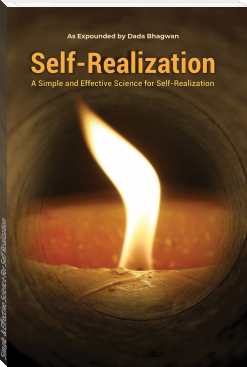
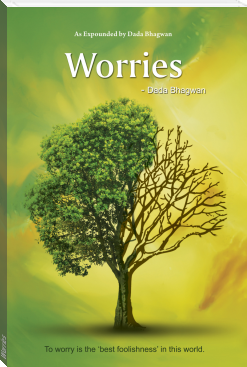
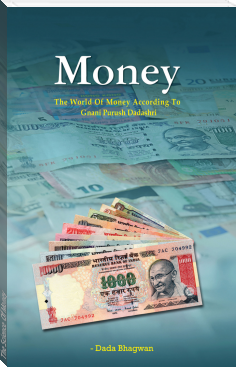

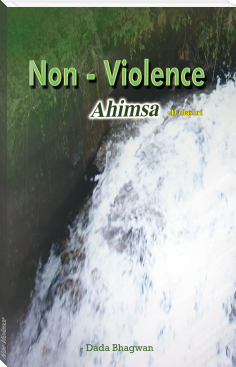
Comments (0)